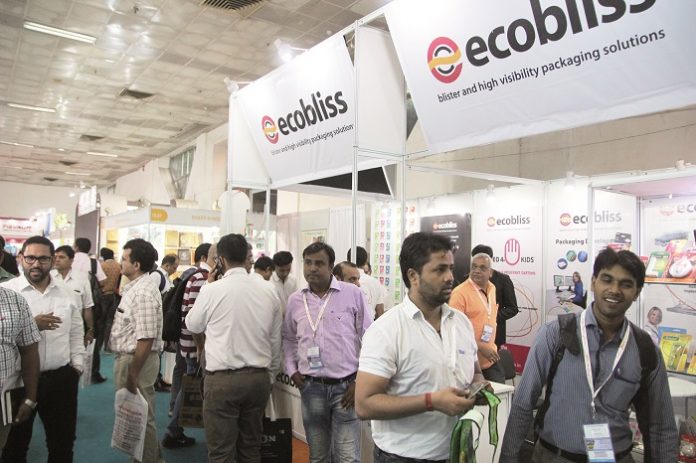The International Packaging Conclave is being organized at Pragati Maidan, New Delhi on 4 August 2017, in association with Siegwerk. The event is being organized concurrently with PackPlus ’17, the annual expo on Packaging, Processing and Supply Chain by Print-Packaging.com Pvt. Ltd. This event is India’s largest trade show on packaging.
The central theme for the day-long conclave is ‘Safe Packaging for a Better Tomorrow.’
Packaging safety has assumed immense importance over the years in the wake of statutory authorities progressively tightening controls and enacting or amending laws keeping consumer protection in mind and reinforcing ‘comfort’ for the common man. Regulation of the safety of packaged products has now become the absolute imperative, and quite rightly so. This is especially important for food and beverage packaging and for packaging of other items that have to do with internal consumption (like pharmaceuticals or nutrients) or direct contact with the human body (like toiletries and other personal products). In fact, the need for regulation goes well beyond just human consumption and covers safety of other species like pets and livestock as well.
Although the ultimate onus for packaging safety rests squarely with brand owners and the manufacturing organizations concerned, there is no doubting the fact that it has to be a collaborative effort involving all system partners and supply chain participants. Even consumers play a significant part by ensuring products are used correctly and in the way they are supposed to use them by avoiding wrong practices and misuse like over dosage. There is not only regulatory implication but also a vital necessity for consumers to rest assured that the product is ‘safe’ from all points of view. This is why there has to be a national ethos and industry-wide realization that safety is not just a statutory or mandatory requirement; it seriously impacts quality assurance, wellness and consumer confidence in the product. Unfortunately, history is replete with instances of product recalls, catastrophies and disasters that have even led to multiple deaths in some cases as a result of packaging safety being compromised or not properly regulated.
Packaging is probably the main contributor to product preservation and safety, including microbial and extraneous contamination. Everybody from basic raw material suppliers to packaging material suppliers to research institutions and supply chain partners have to help brand owners ensure compliance with product requirements including safety standards. Regulatory authorities, on the other hand, have to ensure that appropriate standards are developed and in place; they also have to see that these are properly enforced and continually monitored. This also requires working closely with industry and collaborative interaction followed by legislation and policing keeping consumers’ interests in mind. This can only be done well by drawing on the information pool, domain knowledge and experience of all concerned to achieve optimum results. An important part of this exercise is certification and qualification to assure consumers that they are suitably protected.
Therefore, a conclave such as this makes eminent sense for a wide spectrum of people from brand owners, packaging material suppliers, packaging technologists and professionals, supply chain stakeholders, testing/research organizations, industry associations and consumer fora to governmental and statutory agencies, academia and trade/scientific media.
The conclave will consist of a keynote session, three interactive panel discussions—Product Safety: Risk Assessment, Migration And Toxicology: A Threat To Consumer Safety, and Packaging Compliance: Connecting The Dots—and a concluding session. The panelists are drawn from senior professionals who are responsible for packaging development and regulatory compliance in leading FMCG companies, safety research/standards agencies and packaging industry stalwarts. Discussions are expected to be wide-ranging and extensive.
We will be participating in the conclave and will be carrying a detailed review of the deliberations in our next issue.










